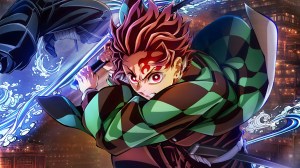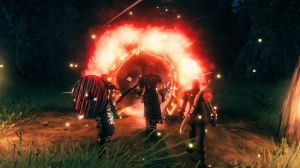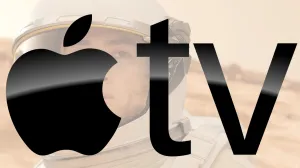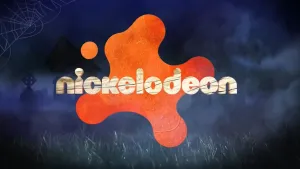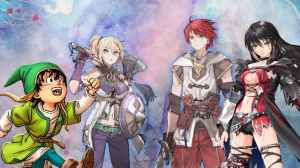With Marvel’s Agent Carter coming to a close and Marvel’s Agents of S.H.I.E.L.D. returning to the small screen next week, Marvel TV chief Jeph Loeb has been at the center of more than a few spinning plates.
Videos by ComicBook.com
The event miniseries Agent Carter connects to the existing Captain America franchise and, as you’d expect from all things Marvel, has been scoured for connections, Easter eggs and references to other material by fans and critics throughout its eight-episode run. Tonight may deliver connections to Agents of S.H.I.E.L.D., Civil War and the future of the Marvel Cinematic Universe…but before it could, that all had to go through Loeb, whose job it is to keep the various live-action and animated shows on Marvel’s slate running smoothly.
Loeb joined ComicBook.com to discuss the perks and challenges of Agent Carter, the hugely-anticipated return of Agents of S.H.I.E.L.D. and its Inhuman plot, and what’s next for what is quickly becoming the biggest interconnected universe on TV.
Looking back on Agent Carter and its 8 episodes, is the mini series approach to telling a story one that Marvel is interested in potentially pursuing again? This format felt like it worked perfectly for this story. Are there other properties you think would work in the format?
Look, some people like to eat filet mignon, some people like porterhouse. I can’t tell you what’s the perfect amount for every single audience. What we try to do is tell the best stories that we can. In this particular case, Carter was something that we went to the network, ABC, with because we thought it was a terrific show. We had an amazing first script from [Christopher] Markus and [Stephen] McFeely who had written Captain America: First Avenger and Captain America: The Winter Soldier, and we also had great show runners in Tara Butters and Michele Fazekas.
Then, on top of that, we had Hayley Atwell and Louis D’Esposito. Louis, who had directed the one shot and happens to be co-president of Marvel Studios, couldn’t be more excited to get this project off the ground. When you have that kind of heavyweight talent we had hoped that we had created something that people would find so desirable that they couldn’t resist. It worked.
Now, the conversation then became, “Where’s the best place to put this? What’s the best way to tell this story?” I’ve certainly talked to enough show runners to know that one of the biggest challenges working in television is to tell 22 hours of TV, as you can imagine. It is an extraordinary challenge creatively, but it’s also an extraordinary challenge production-wise. I mean if you think about it, it is the equivalent of doing 11 motion pictures in the time that you would generally have to make maybe one or two.
The fact that we do as much good TV as we do is a testament to how strong our writing staff is and how strong our crews and production people are. I am in awe of all of them. When it comes to any given show, we’re finding different kinds of answers for everything. S.H.I.E.L.D. happens to be a show which does lend itself towards 22 episodes. I think as you’ve noticed this season we decided that we were going to tell 10 stories in the Fall that would really tell a story unto itself, but then have a major cliffhanger. Then fit in the middle, would be this lovely slice of Agent Carter stories, which would be eight, and then that would enable us to come back in March on March 3rd and tell 12 more S.H.I.E.L.D.’s that are going to run in a row. There will not be any interruptions whatsoever.
That, for us, was a very exciting prospect that ABC would give us 30 hours of Marvel. For that, we’re extremely grateful and I think our fans are very happy with the decisions made and how it works. Just to shift gears for a second, what we do over at Netflix is we tell 13 one-hour stories and therein is a completely different way of telling it because they release them all at once. You have a different way that you lay out, a different kind of structure, a different kind of storytelling because the end result is actually a different kind of show. The short answer is I love working with 8, love working with 13, love working with 22, it just really depends on the story you’re telling.
So you could say something like a Netflix show is more of a graphic novel versus something like S.H.I.E.L.D. where it’s more like a monthly series that you can then read the trade paperback?
It actually works as a metaphor and as someone who’s worked in both fields extensively, I love being on a monthly comic but boy, that’s a lot of work. Boy, that’s working with a gun to your head because you’ve got to have a comic that comes out the next month.
Whereas when Tim Sale and I were doing the color books, doing six issues of Daredevil Yellow and having the time to be able to do it was an awful lot of fun. I just don’t know that Batman: The Long Halloween would have worked as well as a monthly comic; we certainly had a long conversation about it. D.C. decided that we could try to send that comic out as its own entity. Then when it came time to do Hush, Jim Lee felt very strongly that he wanted it to be in the monthly comic. We faced that challenge every month. Were we going to make it?
Again, I give credit where credit’s due. Both Jim and Tim got us across the deadline.
One of the lines you’ve become pretty famous for at conventions is “it’s all connected.” With Agent Carter in the rear view mirror, will S.H.I.E.L.D. fans start seeing the ramifications of the show fairly quickly or is it something that’s more seeded in the background?
I think the short answer is that we would like people to be able to watch our shows and enjoy them as though they are not watching any of our other shows. We also would very much like people to watch all of our shows and that there should be a certain kind of reward for happening. There is something about the connectivity of the universe that Marvel has in its own very unique way. It works really well in our movies and it’s something that’s happening in our television shows. It certainly something that started in the comics in a way that had never really been done before.
Now, whether or not those are large ramifications or those are Easter eggs, I don’t want to comment on and largely because we want you to be able to find those things on your own and see things that help. It’s a little hard to tell the stories of the origin of S.H.I.E.L.D. with the woman who is really one of the most significant players in the S.H.I.E.L.D. storyline and not have it have ramifications in present day.
Some of those are just in the little ways that you’ve seen the tremendous respect that someone like Agent Melinda May has for Peggy Carter. It’s just recognizing that when you have those moments or when Simmons goes off and says “Can you believe we’re actually touching something that Peggy Carter touched?” The idea is not just to say it’s all connected but to make it feel like it’s connected.
Some of that has to do with the way that we’re watching television now. For a long while, shows had a “Water Cooler” moment. For those of us who remember what a water cooler is, it was an expression which meant that the next day at the office, or at school, people talked about what happened last night on television. What’s happened is, the world has become the water cooler. Between Twitter and Instagram and Facebook, people are watching television and talking about it as it’s happening. The water cooler moment is happening instantaneously. We contribute to it because our casts tweet during the broadcast. There’s an interconnectivity that’s going on right away and that, “Oh my god, I can’t believe that’s what Ward did,” or “I feel so bad about Dooley,” those are both horrific that those hit automatically.
What happens is, as you’re watching the show and if you happen to tweet a line of dialogue that made you laugh or a moment that made you cry or something that completely surprised you and you want to hashtag “I blame such and such a person” then what happens is the immediate feedback that you get by having anywhere from 100 to thousands of people respond right away. It’s an adrenaline shot of you watching the show. It also encourages you to then watch it again because you were multitasking while you were watching the show in the first place.
For us, as storytellers, it’s a new frontier. It is something that enables us to have a real connection with our audience and at the same time for the audience to connect back with our material. When I say it’s all connected, I don’t just mean that you’re going to get to see someone put a coin inside an envelope and then you’re going to see that envelope open up on a different show. I’m saying that the emotional connection that you’re having and the love that you have for Peggy Carter is something that everyone who’s watching the show is feeling. I give credit where credit’s due to the extraordinary writing on that show and the extraordinary performance that Hayley Atwell is giving us every week.
When you put those two things together, yes, there’s a connection.
I feel that the live tweeting portion is something that is very classic Marvel. It’s almost like an immediate letters column, or Stan’s soapbox, and even a live convention.
You’ve absolutely hit on something that is tremendously and uniquely Marvel. There are other people who have now leapt on it but it is actually our world. You’ve hit on exactly the things that Marvel did before anybody which was just by Stan and Jack deciding that they were going to give nicknames to everybody and that the beginning of every comic would have a credit sequence, a credit box so you knew who had written and drawn it so that you were automatically creating a certain kind of intimacy. Then you had Stan’s Soapbox. Stan wrote the Soapbox and it had the unique ability of making every single person who read it feel like he was talking to them personally even though there were hundreds, if not thousands, if not millions of people that were reading those comics and getting that same exact feeling.
Marvel CCO Joe Quesada, in particular, embraced that with Cup o’ Joe. That panel has become a standby at every major convention that he goes to is one of those places where you can come up and talk to us. You can ask any question you want and anybody who knows our panels, we try our best to answer as many questions as we can, again, as long as it’s not spoilerific. It is intended to create a bond and a way for us to be able to say thank you to our fans and to our readers and to the people that are watching our shows and our movies. It really does come a very genuine place and it’s something that anyone who’s every come up to me at a convention and asked me to sign something for them, I always say the same thing which is, “I’m so grateful because I don’t get to do what I do unless they do what they do.”
If people stop buying my comic books I wouldn’t be allowed to write them. If people stop watching our television shows we wouldn’t get a chance to make them. I always love when people come up and say thank you. It’s incredibly generous on their part, but at the same token we always want to say thank you back because it is people like the fans who fought for #CoulsonLives that let us know what we already knew, but hearing it helps. What Clark [Gregg], in his own words, says is a relatively minor character in the Iron Man films, would go on to become somebody that we could build a show around.
That’s because of people like the people that are reading this right now. It is their care. It is their voice that let the creative community, the network, and people like Josh Whedon know we love this character. We want to see more of this character. We want to see stories that involve him. The same thing happened with Peggy. It was a ten-minute short that was included on the Iron Man 3 Blu-Ray and people responded to it in a way that was entirely unique. We had done other kinds of shorts but there’s something about Hayley and the way that that was written and directed that people found enchanting and wanted more.
I think you know, about those of us at Marvel, if you want more, we’ll give you more.
Do you love it when fans are able to spot the Easter Eggs?
Yeah, we don’t leave them there for people not to see. But on the other side of things, and to put a name on it, Joss has said we don’t want to be an Easter egg farm.
Right.
But we do look through every script, and now that there’s four shows going, and it would not surprise me if there’s more, it’s a lot of material being generated by a lot of writer’s rooms. Those of us that are overseeing all of it do still take the time to go through and we’ve got people on both coasts looking at it and going could this be a reference to this, or maybe this character could be this person and see where it takes them.
I think it’s safe to say that the cliffhanger at the end of S.H.I.E.L.D.’s mid-season finale blew the doors wide open in terms of going to show that anything is possible. Now, heading into the second half of the season, how important is that not only for the show but also for Marvel TV?
Well, look, I’m glad that you’re on board. I think people really believed we were serious when Ward turned around and did something that was…spoiler alert…bad. We have really set out, not just on S.H.I.E.L.D., but on all of our shows to make it so that after you’ve watched the episode you have a wonderful moment where you’re saying to yourself, “Wow, I didn’t see that coming.” Because there’s too much “I knew it” television out there. We like to tell stories where people are genuinely surprised, so much so that what they want to do is they want to come back again and they want to come back quickly. Our job then becomes how many stories can we tell in any given year?
Again, I have to give credit to Jed Whedon, Maurissa Tancharoen, Jeff Bell and the incredible writing staff over at S.H.I.E.L.D. All I can tell you is you ain’t seen nothing yet. If the first half of the season was a roller coaster and if you’ve been on a really good roller coaster, it goes up, up, up, up, up and then it goes down and it whips around a corner and you’re screaming and yelling and you think, “Well, there really can’t be much more than that,” and then suddenly you look in front of you and there’s a much larger hill. I think that that the last 12 episodes justifies itself in making the first half look like the warm-up half.
It really has some spectacular stuff, some of which folks know and some they don’t know. But having Edward J. Olmos and Blair Underwood join our cast and knowing that Lady Sif herself, Jamie Alexander, is coming back sets you up for excitement. It’s just when you know those kind of quality actors are teaming up with what’s already been such a fantastic group of individuals, all I can say is the best is yet to come.
Looking a bit at bigger picture, does the agreement between Marvel and Sony essentially trickle down to what may or may not be able to happen in TV?
I’m the wrong person to ask about that.
[Chuckles]
Let’s just put it that way.
Any final thoughts before I let you go?
Not to repeat myself but again, when I was talking about how we like to say thank you, one of the things that we do like to do is say thank you to the sites and to the people who visit those sites that have taken time to write about our shows and write about the quality of the shows and what people ought to be doing, which is watch the shows, enjoy yourselves, and then come here to this website and write about them again. It’s continuing the experience. The online fan community has been an absolute blast to watch grow
There has never been a better time to be a Marvel fan than there is right now. When you look at what’s going on in animation, in live action, in the movies, in comics, we’re just telling the best stories we can and we’re really glad that people like them.
—
What say you ComicBook.com faithful? Are you excited to see more things like Agent Carter? Excited for the return of Agents of S.H.I.E.L.D.? Let us know below!



